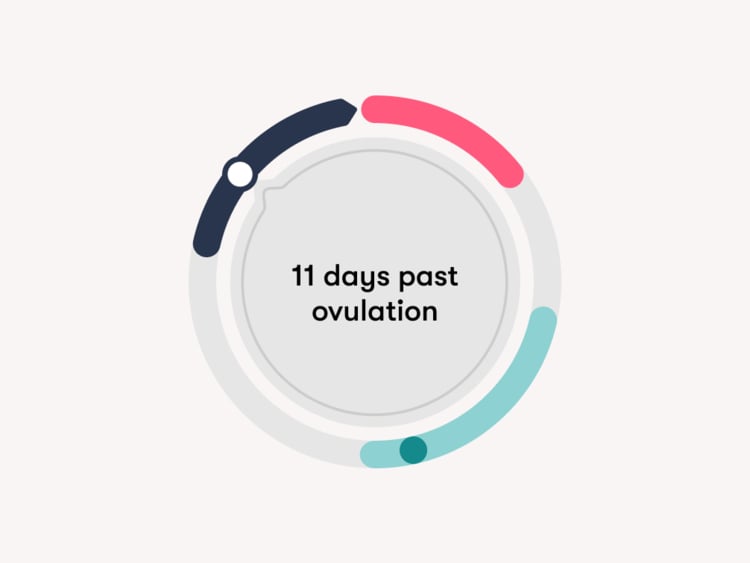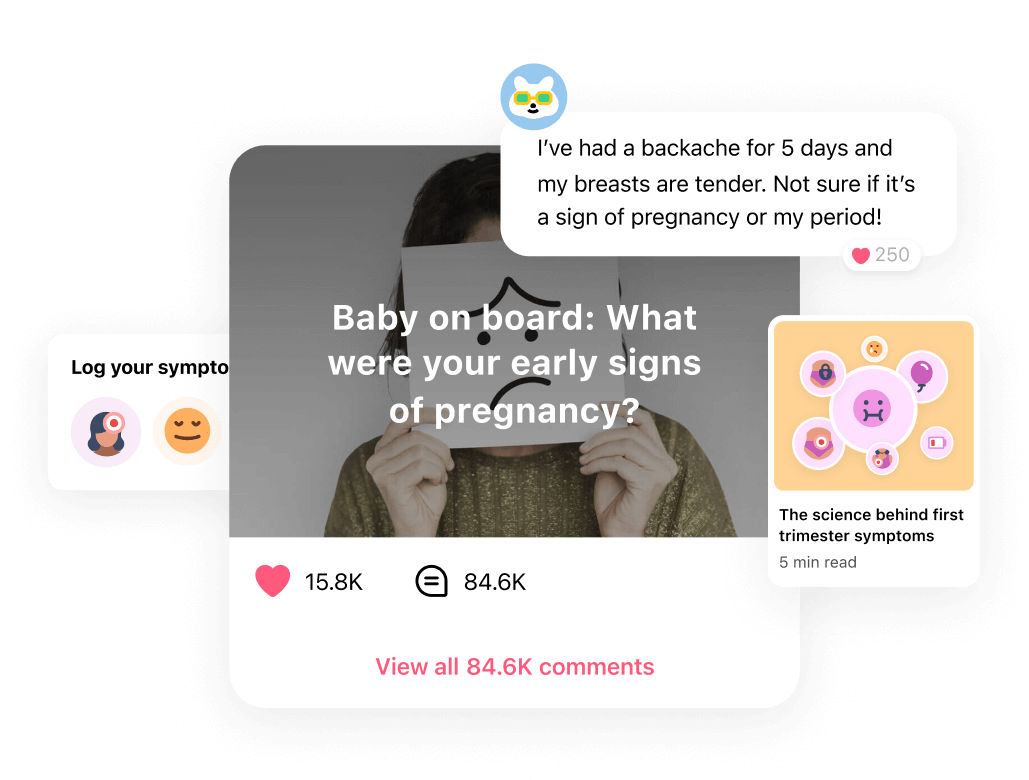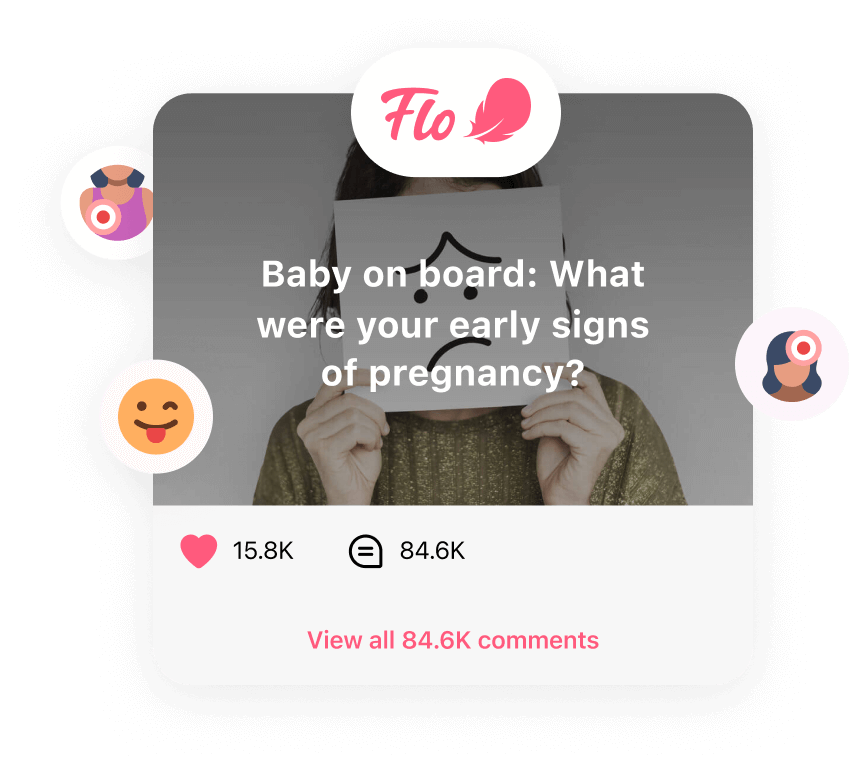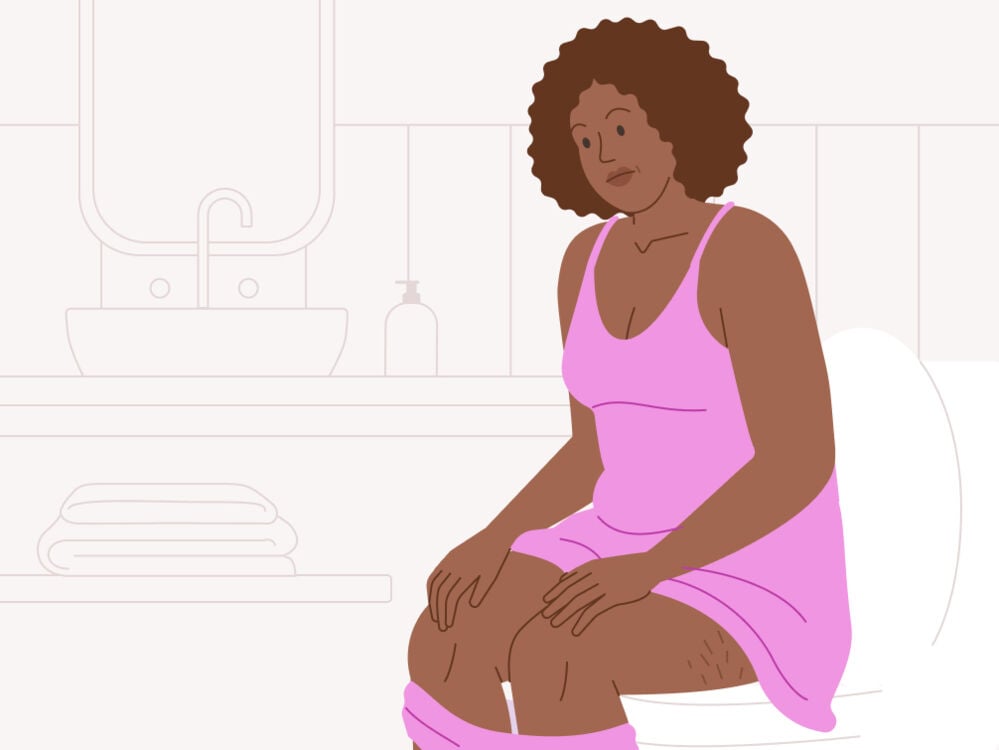From fluctuations in your hormones to differentiating between PMS and early pregnancy, here’s the lowdown on 11 DPO.
-
Tracking cycle
-
Getting pregnant
-
Pregnancy
-
Help Center
-
Flo for Partners
-
Anonymous Mode
-
Flo app reviews
-
Flo Premium New
-
Secret Chats New
-
Symptom Checker New
-
Your cycle
-
Health 360°
-
Getting pregnant
-
Pregnancy
-
Being a mom
-
LGBTQ+
-
Quizzes
-
Ovulation calculator
-
hCG calculator
-
Pregnancy test calculator
-
Menstrual cycle calculator
-
Period calculator
-
Implantation calculator
-
Pregnancy weeks to months calculator
-
Pregnancy due date calculator
-
IVF and FET due date calculator
-
Due date calculator by ultrasound
-
Medical Affairs
-
Science & Research
-
Pass It On Project New
-
Privacy Portal
-
Press Center
-
Flo Accuracy
-
Careers
-
Contact Us
11 DPO/days pregnant*: Are there any pregnancy symptoms at 11 days past ovulation?


Every piece of content at Flo Health adheres to the highest editorial standards for language, style, and medical accuracy. To learn what we do to deliver the best health and lifestyle insights to you, check out our content review principles.
If you’re trying for a baby, then it’s very normal to be on high alert for early pregnancy clues. Between missing your period, sore boobs, nausea, and fatigue, the signs of early pregnancy can look pretty different for everyone. Knowing what you might expect can help you identify what might be going on for you even without a pregnancy test. However, the only way to know for sure that you’re pregnant is by taking a test. So, is 11 DPO too early to do a pregnancy test?
You might notice new symptoms at 11 DPO but not be sure if they’re a sign that you’re expecting or if they’re linked to premenstrual symptoms. So, here’s a closer look at what’s happening in your body at 11 DPO, plus the lowdown on the best time to take a pregnancy test.
*What you might call 11 days pregnant is actually 11 days past ovulation (DPO). Ovulation is around the midpoint in your cycle where one of your ovaries releases an egg. Doctors date pregnancy from the first day of your last menstrual period, which happens about two weeks before ovulation. So when you’re 11 DPO, medically, that puts you at roughly 3 weeks and 4 days pregnant.
Key takeaways
- Implantation (when your fertilized egg attaches to the lining of your uterus) typically happens between six and 10 DPO. This means at 11 DPO, you may be officially pregnant. However, it’s still a little early to notice some of the signs of pregnancy.
- While you might be pregnant at this point, it’s still recommended that you wait until 14 DPO or the first day of your missed period to take a pregnancy test.
- The reason it's best to wait until 14 DPO is because pregnancy tests work by detecting the pregnancy hormone hCG, which your body starts to produce following implantation. Your hCG levels start low at the start of your pregnancy but rise rapidly. This means by the first day of your missed period (usually around 14 days after ovulation) you may have high enough levels to get an accurate pregnancy test result.
- If you test too soon, you risk getting a false negative, as your hCG levels may not be high enough yet to register on a home test.

 Over
7.8M
ratings averaging
4.8/5
*
Over
7.8M
ratings averaging
4.8/5
*
Understand your body’s signals with the Flo app
- Chat with others who are trying to get pregnant.
- Get trusted information on signs of pregnancy from 100+ medical experts.
- Log your symptoms and learn what they could be trying to tell you.
 Over
7.8M
ratings averaging
4.8/5
*
Over
7.8M
ratings averaging
4.8/5
*

Trying to conceive?
The Flo app can help you through the two-week wait.

 Over
7.8M
ratings averaging
4.8/5
*
Over
7.8M
ratings averaging
4.8/5
*
Understand your body’s signals with the Flo app
- Chat with others who are trying to get pregnant.
- Get trusted information on signs of pregnancy from 100+ medical experts.
- Log your symptoms and learn what they could be trying to tell you.
11 DPO: What to expect?
Eleven DPO stands for 11 days past ovulation. To break this down, this means that 11 days ago, one of your ovaries released an egg to potentially be fertilized by a sperm. It can be hard to place 11 DPO in your cycle, so to make it a little easier to understand, think of your cycle as two parts or phases.
- The follicular phase: The first part of your menstrual cycle is called your follicular phase. It lasts for around 14 days, and it’s easy to know when your follicular phase starts, as it lines up with the first day of your period. During this time, your estrogen levels rise and the lining of your uterus thickens to help with implantation. Your ovaries also prepare an egg to be released during ovulation.
- The luteal phase: The second phase of your cycle is called your luteal phase. It starts from the day that you ovulate. Ovulation is when one of your ovaries releases an egg. If you have a 28-day cycle, then this is around day 14. Your luteal phase ends on the first day of your next period. During this time, your progesterone levels rise in preparation for a potential pregnancy.
For implantation to happen, one of your ovaries needs to release an egg. Then, it’s fertilized by a sperm, travels down your uterine tube, and attaches to the lining of your uterus. This can take six to 10 days, and implantation signifies the official beginning of your pregnancy. Since implantation likely happened between six and 10 DPO, you may already be pregnant at 11 DPO but not feel much different. Here’s why.
After implantation, your body starts to produce more human chorionic gonadotropin (hCG). This is the pregnancy hormone that at-home tests detect in your pee. At the start of pregnancy, your hCG levels are low but rise rapidly during your 1st trimester. “These rising levels help to maintain the pregnancy so your body doesn’t trigger a menstrual cycle, but also can cause bothersome symptoms typical for pregnancy,” explains Dr. Renita White, obstetrician and gynecologist, Georgia Obstetrics and Gynecology, Georgia, US.
Can I take a pregnancy test at 11 DPO, or is it too early?
If 11 DPO means you might already be pregnant, then it’s only natural to want to take a test, right? After all, if implantation did happen, then your hCG levels might have started to rise.
However, it’s crucial to give your body enough time to produce enough hCG to be detected on an at-home test. As Dr. White explains: “Your pregnancy hormones are not high enough at 11 DPO to be secreted into your urine, so often a urine pregnancy test is not positive yet.”
This doesn’t necessarily mean you aren’t pregnant and you won’t get a positive test this cycle. It’s just a little bit too early to take a pregnancy test. It’s advised that you wait until the first day of your missed period before taking one to get an accurate result.
If you’ve been trying for a baby, then the thought that you might be pregnant can be all consuming. “The two-week wait can be very nerve-racking as you wait for a positive pregnancy test,” says Dr. White. However, she explains that there are some things you can do to plan for a potential pregnancy and take your mind off things. Reach out to the people in your life who make you feel most loved and comforted. This might be your partner, family, or a friend. Indulge in your favorite peaceful pastimes — be that reading a book, watching a TV series, or getting out into the fresh air. Try not to pressure yourself into doing things that feel overwhelming.
Pregnancy symptoms at 11 DPO
While it’s still a little bit too early to do a pregnancy test at 11 DPO, you might still notice that you’re feeling different. Confusingly, “early pregnancy symptoms often mimic premenstrual syndrome (PMS),” says Dr. White. In fact, the timing for when you might start to notice pregnancy symptoms can also coincide with the start of your period.
To break down what you might be feeling and why, here are some symptoms you might notice at 11 DPO:
Cramping
If you notice abdominal cramping or backache at 11 DPO, it can feel like your period is coming. These are pretty common symptoms before your period starts. However, cramps are also common in early pregnancy after implantation. As your progesterone levels spike, the walls of your uterus can relax, which can lead to aches. Similarly, as your egg attaches to the lining of your uterus during implantation, you might feel a dull pain.

Fatigue
Falling asleep at your desk? Fatigue is a common symptom in the lead-up to your period. However, it can also be linked to early pregnancy. If implantation has taken place, by 11 DPO, your body will be working hard to support your new baby while also grappling with a rush of new hormones, so it’s normal to feel extra sleepy around this time.
Breast changes
Your boobs are hormone sensitive, which means that as your estrogen and progesterone levels fluctuate in your luteal phase, your breasts might look and feel differently. This is described as cyclical breast pain and can happen as your hormones change. Your boobs may feel fuller or more sensitive.
Early pregnancy is also a time of pretty monumental hormone changes. Thanks to surging hormone levels, increased blood flow, and fluid retention, your breasts are likely to change in lots of ways throughout pregnancy.
Frequent urination
Do you find yourself running to the toilet to pee a lot more than usual, but you aren’t sure why? Needing to pee more than normal could be a sign that you’re drinking too much fluid, you’re drinking more caffeine or alcohol, or — if it’s accompanied by symptoms like burning and a funny smell — you might have a urinary tract infection, which is easily treated. Be sure to schedule a checkup with your doctor if that’s you.
If you have been trying for a baby, then it’s worth remembering that frequent urination is also a common early pregnancy symptom. While you might associate needing to pee more with a growing baby putting pressure on your bladder, it can also happen as your blood volume increases and your kidneys have to work extra hard to filter out any impurities. These impurities leave your body in your pee. Similarly, as your hormones fluctuate during pregnancy, it can lead your pelvic floor muscles, which hold your bladder in place, to loosen. An increase in progesterone can also cause these muscles to become more flexible.
Mood swings
You may be no stranger to feeling tense or upset in the week running up to your period. Fluctuations in your estrogen and progesterone levels can contribute to mood changes. You might already have your routine down for when you feel like this. However, mood changes are also pretty common during early pregnancy. Since PMS can coincide with when you might start to notice early pregnancy symptoms, it can be tough to distinguish between the two.
Take a quiz
Find out what you can do with our Health Assistant
11 DPO and no symptoms
Understanding early pregnancy symptoms may help you spot when something is different. However, frustratingly, there’s no one way to “feel” pregnant. Every pregnancy is unique. As implantation may have only just happened, it’s also normal if you don’t feel any different at this stage. “Some people don’t have pregnancy symptoms by 11 DPO because the hormone levels are not high enough in the bloodstream yet,” explains Dr. White. This doesn’t mean your symptoms won’t come or you won’t have a positive pregnancy test this cycle. Some people don’t have any pregnancy symptoms for a few weeks, so try not to worry.
More FAQs
Is 11 DPO too late for implantation?
Generally speaking, implantation typically happens between six and 10 DPO. However, your cycle is personal to you, so implantation at 11 DPO isn’t impossible.
Is a faint line at 11 DPO normal?
You might be tempted to do a pregnancy test at 11 DPO just to see if you get a positive test result. However, your hCG levels are likely to be low at this time, so you run an increased risk of getting a false-negative result. If you notice a faint line on your pregnancy test at 11 DPO, then this may indicate that you are pregnant but your hCG levels are still very low. Take another test on the first day of your missed period.
Can dehydration affect hCG levels?
It’s a great idea to drink plenty of water for your overall health, and normal hydration doesn’t directly affect the levels of hCG that your body produces. HCG is produced by your placenta (the new organ your body grows during pregnancy to support your baby), and the amount of water you drink doesn’t impact this. However, the amount of water in your urine can affect pregnancy tests. This is because water in your urine can dilute the hCG and could lead to a false negative pregnancy test. Typically, the test is most accurate if completed first thing in the morning.


Hey, I'm Anique
I started using Flo app to track my period and ovulation because we wanted to have a baby.


The Flo app helped me learn about my body and spot ovulation signs during our conception journey.


I vividly
remember the day
that we switched
Flo into
Pregnancy Mode — it was
such a special
moment.
Real stories, real results
Learn how the Flo app became an amazing cheerleader for us on our conception journey.
References
“Week 4.” NHS, www.nhs.uk/start-for-life/pregnancy/week-by-week-guide-to-pregnancy/1st-trimester/week-4/. Accessed 23 Nov. 2023.
“Am I Pregnant?” Cleveland Clinic, my.clevelandclinic.org/health/articles/9709-pregnancy-am-i-pregnant. Accessed 16 Nov. 2023.
Betz, Danielle, and Kathleen Fane. “Human Chorionic Gonadotropin.” StatPearls, StatPearls Publishing, 14 Aug. 2023, www.ncbi.nlm.nih.gov/books/NBK532950/.
“Changes during Pregnancy.” The American College of Obstetricians and Gynecologists, www.acog.org/womens-health/infographics/changes-during-pregnancy. Accessed 23 Nov. 2023.
Cheung, Katharine L., and Richard A. Lafayette. “Renal Physiology of Pregnancy.” Advances in Chronic Kidney Disease, vol. 20, no. 3, May 2013, pp. 209–14, doi: 10.1053/j.ackd.2013.01.012.
“Doing a Pregnancy Test.” NHS, www.nhs.uk/pregnancy/trying-for-a-baby/doing-a-pregnancy-test/. Accessed 23 Nov. 2023.
“Follicular Phase.” Cleveland Clinic, my.clevelandclinic.org/health/body/23953-follicular-phase. Accessed 23 Nov. 2023.
“Frequent Urination.” Cleveland Clinic, my.clevelandclinic.org/health/symptoms/15533-frequent-urination. Accessed 23 Nov. 2023.
“Frequent Urination.” Mayo Clinic, 19 May 2023, www.mayoclinic.org/symptoms/frequent-urination/basics/causes/sym-20050712.
“Home Pregnancy Tests: Can You Trust the Results?” Mayo Clinic, 23 Dec. 2022, www.mayoclinic.org/healthy-lifestyle/getting-pregnant/in-depth/home-pregnancy-tests/art-20047940.
“Pregnancy and Bladder Control.” Cleveland Clinic, my.clevelandclinic.org/health/diseases/16094-pregnancy-and-bladder-control. Accessed 23 Nov. 2023.
“Luteal Phase.” Cleveland Clinic, my.clevelandclinic.org/health/articles/24417-luteal-phase. Accessed 23 Nov. 2023.
“Menstrual Cramps.” Mayo Clinic, 30 Apr. 2022, www.mayoclinic.org/diseases-conditions/menstrual-cramps/symptoms-causes/syc-20374938.
“Pregnancy Test (Beta-HCG).” Gloucestershire Hospitals NHS Foundation Trust, www.gloshospitals.nhs.uk/our-services/services-we-offer/pathology/tests-and-investigations/pregnancy-test-beta-hcg/. Accessed 23 Nov. 2023.
“Pregnancy Tests.” Cleveland Clinic, my.clevelandclinic.org/health/diagnostics/9703-pregnancy-tests. Accessed 23 Nov. 2023.
“Premenstrual Syndrome (PMS).” Mayo Clinic, 25 Feb. 2022, www.mayoclinic.org/diseases-conditions/premenstrual-syndrome/symptoms-causes/syc-20376780.
“Signs and Symptoms of Pregnancy.” NHS, www.nhs.uk/pregnancy/trying-for-a-baby/signs-and-symptoms-of-pregnancy/. Accessed 23 Nov. 2023.
Su, Ren-Wei, and Asgerally T. Fazleabas. “Implantation and Establishment of Pregnancy in Human and Nonhuman Primates.” Advances in Anatomy, Embryology, and Cell Biology, vol. 216, 2015, pp. 189–213, doi:10.1007/978-3-319-15856-3_10.
“Symptoms of Pregnancy: What Happens First.” Mayo Clinic, 3 Dec. 2021, www.mayoclinic.org/healthy-lifestyle/getting-pregnant/in-depth/symptoms-of-pregnancy/art-20043853.
Thiyagarajan, Dhanalakshmi K., et al. “Physiology, Menstrual Cycle.” StatPearls, StatPearls Publishing, Jan. 2023, www.ncbi.nlm.nih.gov/books/NBK500020/.
History of updates
Current version (08 December 2023)
Published (12 February 2019)
In this article

Get your personal guide to fertility
-
Learn how to read your body's ovulation signals
-
Find daily conception tips from our experts
-
Chat with others who are trying to get pregnant




